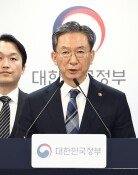Longer life span, unimproved quality of life: NSO
Longer life span, unimproved quality of life: NSO
Posted December. 27, 2000 10:00,
The National Statistical Office (NSO) said Wednesday that a key indicator showed that although the average Korean's life span was increasing, the quality of life was not as high.
It also said that while the number of criminal cases had decreased, the number of felony cases increased.
Its studies also showed that more single women in their 20s don¡¯t want to married and that more women think about divorce than men.
Owing to the economic slump, people are reducing their spending despite growing incomes, it said.
PC communications and cellular phones have become necessities and most people have little interest in elections.
Korea's gross domestic product (GDP), a measure of the size of the nation¡¯s economy, increased 8.9% over 1998 to reach 483.8 trillion won last year. Consumer spending and the private savings rate declined.
Although gross national product (GNP) per capita was 10.21 million won, increasing 8.3% month on month, the private spending and private savings rates fell 7.7% and 0.2%, respectively. The monthly average income of urban workers rose 2.4-fold compared to 1990, standing at 2.22 million won. A total of 48% and 41.6% of income earners among people over 15 years of age expressed dissatisfaction with their incomes and life as consumers, respectively.
The marriage age is gradually becoming higher. A male marries at the age of 29.1 and a female at 26.3 according to 1999 statistics. Divorce and remarriage ages are on the rise as well, which reflects a higher divorce rate among long time-married couples.
More women (41.4%) considered divorce as an option than men (34%). Among couples working together for a living, about 50.2% share household chores and among those couples, 37.8% of wives are in charge of this type of work.
Roughly 2,881,000 personal computers were purchased in 1999 alone. PC communications subscribers numbered 10,155,000 at the end of 1999, increasing 58% compared to the end of 1998. Computers have become indispensable to daily life amid the information & communications boom.
Felony crimes increased, despite the fact that total criminal cases dropped by 1.9%, standing at 1,733,000 cases last year. Violent crimes and rapes increased 27.2% and 6.5%, respectively year on year. The number of juvenile delinquents now stands at 685,993. The voting rate for elections is declining. The voting rate for the 1997 presidential election was 80.7%, down 1.2% than from 1992. The voting rate for the 2000 elections to select National Assembly members was 57.2%, a decline of 6.7% and the lowest voting rate of its kind in Korean history.







